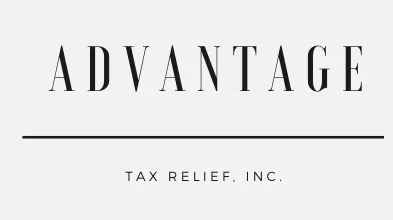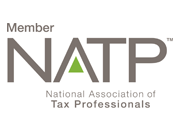Blog Layout
Is it Bad to Settle With the IRS?
June 20, 2022
Will this "solution" hurting yourself in the long run?
You may have heard on the radio, TV, and online, that you can settle your tax bill for less than what you owe. But are these claims actually true? And can you really settle your tax debt without hurting yourself in the long run?
Some of these national tax resolution firms you hear advertising offer very little service, just look at their Google and Yelp Reviews. So it’s important to know who to trust and get educated on what your options are to resolve your tax problem.
As a local expert Tax Resolution Firm ourselves serving the Chicago area, we encourage all readers facing a tax problem to contact us for a free consultation.
The truth is that though it’s often harder than they claim to settle for less than you owe the IRS, it is possible and you must first learn if you qualify for the program. This is called an "offer in compromise," but settling is not necessarily a bad thing.
An "offer in compromise" is a negotiated settlement between the taxpayer and the IRS that is intended to help taxpayers who owe more than they can pay. In a lot of cases, you can settle your entire tax bill for a fraction of what you owe, if you qualify. You can only get one if you genuinely can't afford to pay back taxes or if doing so would cause extreme hardship. This can apply, for example, if you have become disabled.
You have to be current on all legally required income tax returns and must be current on any estimated tax payments if you are self-employed and you can not file for bankruptcy.
The IRS would rather take an offer in compromise than send you to collections and potentially get less money. Taking an offer in compromise will NOT affect your credit score.. Having your offer in compromise accepted is a far better financial decision in the long run.
However, working out what offer to make on your own and learning the whole process can be challenging. That’s like representing yourself in a court of law without a lawyer. Not smart. A better answer is to find a tax resolution specialist that can help you with the process to see if you qualify and determine what you will have to pay. A tax resolution specialist will also be a licensed CPA, Enrolled Agent or an Attorney.
One of the great things about working with a qualified and local tax resolution firm is that you get protection from the overbearing IRS, letting you sleep better at night knowing you’re on your way towards permanent tax resolution. They can head-off any impending garnishments of your paycheck or levies on your bank account.
Settling with the IRS is a good thing and is often the best answer to dealing with your back tax bill and moving on with your life.
If you want an expert tax resolution professional who knows how to navigate the IRS maze, reach out to our firm and we’ll schedule a no-obligation confidential consultation to explain your options to permanently resolve your tax problem. Contact us today!

By 7066766659
•
December 30, 2024
Receiving an LT11 letter from the IRS can be incredibly unsettling. This notice is a serious warning that the IRS is prepared to take tough action to collect unpaid taxes. If you’ve received this letter, it’s important to understand what it means and why you need to act quickly. What is an LT11 Letter? An LT11 letter, also known as the "Final Notice of Intent to Levy and Notice of Your Right to a Hearing," is sent by the IRS when you have unpaid taxes and haven’t responded to previous notices. This letter means the IRS is ready to levy your assets, which means they can legally take your property to pay off the tax debt. This could include money in your bank accounts, your wages, your home, or other valuable belongings. What Can Happen If You Ignore It? If you ignore an LT11 letter, the IRS can take serious actions, such as: Seizing Money from Your Bank Account: The IRS can freeze your bank accounts and take the money. Garnishing Your Wages: Your employer will have to send a portion of your paycheck to the IRS. Taking Your Property: The IRS can seize your house, car, or other valuable items. Damaging Your Credit Score: A levy or lien can hurt your credit score, making it hard to get loans or credit in the future. Why You Need to Act Quickly The LT11 letter gives you only 30 days to respond. Within this time, you have the right to request a Collection Due Process (CDP) hearing. This hearing is your chance to dispute the levy action, propose a different payment plan, or challenge the amount you owe. If you don’t act within these 30 days, the IRS will start the levy process, and your options will be very limited. The Importance of Professional Help Dealing with the IRS and resolving tax problems can be very complex, and trying to handle it on your own can lead to mistakes that might make your situation worse. A tax resolution professional has the knowledge and experience to help you navigate this challenging process. Benefits of Professional Help: Expert Negotiation: A professional can negotiate with the IRS on your behalf to secure the best possible terms. Strategic Planning: They can develop a plan to resolve your tax issues without causing financial hardship. Legal Protection: A professional ensures that your rights are protected throughout the process. If you’ve received an LT11 letter, don’t wait another moment. Contact Advantage Tax Relief immediately at 630-773-3200. Advantage Tax Relief is a skilled tax resolution firm that can help you navigate your tax issues and achieve the best possible outcome. Call Advantage Tax Relief NOW at 630-773-3200 to prevent the IRS from taking your hard-earned money and assets.

November 25, 2024
What is a CP523 Notice from the IRS? Receiving a CP523 notice is a serious matter. It’s an official communication from the IRS informing you that your tax installment agreement has been canceled. This typically happens when you fail to make payments or violate the terms of your repayment plan. If you’ve gotten this notice, it means the IRS is prepared to take further action, so it’s critical to understand what it means for your situation. Why You Need to Act Now A CP523 notice signals that your repayment agreement is no longer in effect. Without an active installment plan, the IRS has the authority to initiate collection actions against you, including: Wage Garnishments: The IRS can garnish your wages without additional warning. Bank Levies: They may seize funds directly from your bank account. Liens on Property: The IRS could place liens on your property, affecting your ability to sell or refinance. Ignoring the CP523 notice can lead to significant financial consequences, such as: Immediate Tax Payment Demand: You could be required to pay your entire outstanding balance in full, which can be overwhelming. Escalating Collection Efforts: The IRS can move quickly to enforce collection actions if you don’t address the notice in a timely manner. Damage to Your Credit: Unresolved tax issues can severely impact your credit, making it difficult to secure loans, credit, or even housing. Steps to Take if You Receive a CP523 Notice While receiving a CP523 notice can feel intimidating, there are clear actions you can take to prevent further issues: 1. Respond Promptly: Time is critical. The sooner you take action, the better your chances of avoiding severe consequences. 2. Review the Notice Carefully: Understand the reason your installment agreement was canceled, the amount you owe, and any deadlines for taking action. 3. Evaluate Your Financial Situation: Take stock of your finances and explore your options for resolving your debt. This might include reinstating your installment agreement, negotiating new terms, or looking into other tax relief solutions. 4. Contact the IRS: Reach out to the IRS as soon as possible to discuss your situation and find out what steps you need to take to get back on track. 5. Consider Professional Help: Navigating the IRS system can be complex, but you don’t have to do it alone. A tax professional like John Bruszewski at Advantage Tax Relief can help you negotiate with the IRS, review your options, and work toward a favorable outcome. Don’t Wait – Get Help Now Ignoring a CP523 notice can make matters worse. It's essential to act quickly and seek guidance from a trusted expert. John Bruszewski at Advantage Tax Relief is here to help you understand your options, negotiate on your behalf, and guide you through the process. Call for a Free Consultation Don’t wait until it’s too late. Call Advantage Tax Relief today at 630-773-3200 for a risk-free consultation and get the help you need to resolve your tax issues and protect your financial future.
,
This is a placeholder for the Yext Knolwedge Tags. This message will not appear on the live site, but only within the editor. The Yext Knowledge Tags are successfully installed and will be added to the website.
This is a placeholder for the Yext Knolwedge Tags. This message will not appear on the live site, but only within the editor. The Yext Knowledge Tags are successfully installed and will be added to the website.
This is a placeholder for the Yext Knolwedge Tags. This message will not appear on the live site, but only within the editor. The Yext Knowledge Tags are successfully installed and will be added to the website.
COVID-19 update:
Advantage Tax Relief, Inc. is open and helping clients via no-cost initial telephone consultations, no- contact document drop-offs, and electronic communications throughout the process.
Hi. Do you need any help?
Privacy Policy
| Do Not Share My Information
| Conditions of Use
| Notice and Take Down Policy
| Website Accessibility Policy
© 2024
The content on this website is owned by us and our licensors. Do not copy any content (including images) without our consent.








Share On: